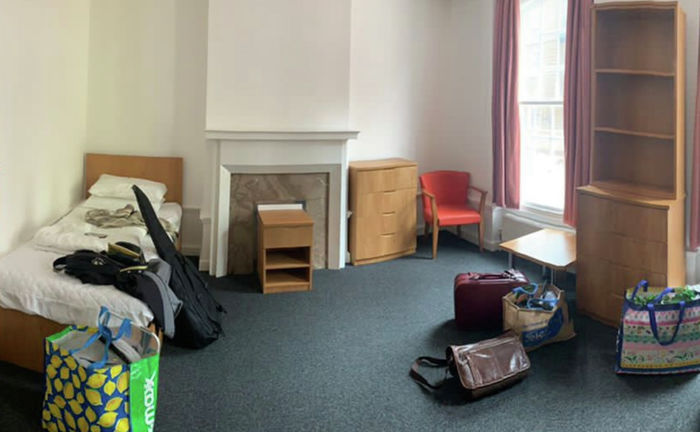The ironies of the Oxbridge summer school
As colleges continue to profit from the flourishing ‘Oxbridge Summer School’ industry, perhaps they could improve conditions for their current students and staff

Head to any Oxbridge summer school website and you will be promised something along the lines of an unforgettably inspiring, profoundly enriching, undeniably positive experience. Different companies vary when it comes to the intensity of the academic side of their camps, but you can pretty much guarantee day trips, classes, the classic marshmallow spaghetti workshop and, of course, a formal hall to round off this elite holiday. It sounds unmissable – a flavour of the Oxbridge highlights, and (lucky you!), you’re also entitled to a healthy taste of the extortionate cost of university education: each two-week course will set you back approximately six grand.
I wasn’t massively startled when I first heard this figure during my stint of summer school work. Historically, having lots of money practically equated admission to Oxbridge, until colleges began to encourage applications from students from less privileged backgrounds. Exclusively elite summer schools continue to uphold this imbalance.
“Paying ungodly amounts and not receiving a satisfactory experience may strike an uncomfortable chord if you’re a student reader”
A fellow worker pondered whether these camps are fuelled by paranoid parents, influenced by the right-wing press with their “lament[ations] over the decline of public-school Oxbridge offer holders”. However, even though the children were incredibly well-off, there were surprisingly few moments where this spiralled into entitlement. (Few, not none: one kid did throw a tantrum when they lost their water bottle. I’ve never seen someone stomp in a pair of Yeezy’s. But it all made perfect sense once I’d learned the bottle’s brand: Dior).
But that amount of money still warranted some further thought, particularly as most of these camps were run by student workers who arrived on the same day as the kids with no special knowledge apart from going to Oxbridge. No one knew each other and workers at head office didn’t seem familiar with the university. It was like trying to unscramble an egg; bond with your colleagues, keep the porters happy, please your managers and, of course, keep the kids happy. Add to that the ever-changing rotas which saw you working from 8:00 to 23:00, sometimes receiving no breaks, and it became virtually impossible to give the kids six grand’s worth of smiles and attention.
Of course, this was not everyone’s experience. When things ran smoothly, there was everything from top quality rounders matches to brilliantly cheesy discos. Yet others saw things differently; in their eyes, parents were paying for “two weeks rent, lessons from PhD students and a branded tote bag”. Employee experience was so varied across different summer camps because the system functions as a gig economy. It’s the luck of the draw for all involved as having great staff can only be guaranteed by competent managers. And if this falls through, as it’s more likely to do given workers are employed only for that year, then, well, the students better get a really good quality tote bag.
“Money is being pumped into faux-Oxbridge holidays, while the pillars of these institutions are slowly crumbling”
Paying ungodly amounts and not receiving a satisfactory experience may strike an uncomfortable chord if you’re a student reader; over the camp, I was struck by certain moments of awful irony. In my first week, I learned of the ridiculously low amounts our supervisors are paid, which I revealed in a Marking Boycott article. Summer school teachers were paid 160% more. When you consider that only two-thirds of the kids were interested enough to go to their lessons on time, the rest dreading the appearance of a thrilled employee tasked with the job of waking them from oversleeping, that money is essentially going towards glorified babysitting. And there are many employees in our university system who would greatly appreciate it.
In the second week, there was lots of hustle and bustle to prepare for the big occasion to end the camp – graduation! That Thursday, I texted my colleague on her day off: “for graduation awards, would you agree that Louis should get ‘biggest Shelby lookalike’? Also, good luck today!! Send pics!” While the kids received certificates and a fitting send off – an acknowledgment of their two weeks – this colleague was at her actual graduation, receiving a handshake instead of a degree – her acknowledgement for three years of hard work and high fees.
The general attitude towards summer schools is one of disdain at the shocking amount of money the Oxbridge brand can bring. But perhaps this money could be put to good use. As parents fork out two-thirds of British tuition fees for the camps, it’s worth considering if this could go towards maintaining and reshaping the prestige that sells these summer schools in the first place. Money is being pumped into faux-Oxbridge holidays, while the pillars of these institutions are slowly crumbling – both figuratively and literally.
A student’s experience on these courses is variable, dependent on staff-attitudes and quality of teaching. But overall, staff are well-paid and often enthusiastic – at least to begin with. Should universities take note? After all, it’s clear that decent pay leads to mostly positive outcomes. The ongoing industrial action by academics is complex on a national scale. But as colleges continue to fill their coffers from the trade in conferences and summer schools, perhaps they could notice the irony under their noses. These schools will continue to flourish. Perhaps the income they bring in should be used to shore up the façade that’s sold to prospective students.
 News / News in Brief: Postgrad accom, prestigious prizes, and public support for policies11 January 2026
News / News in Brief: Postgrad accom, prestigious prizes, and public support for policies11 January 2026 Comment / Will the town and gown divide ever truly be resolved?12 January 2026
Comment / Will the town and gown divide ever truly be resolved?12 January 2026 Comment / Plastic pubs: the problem with Cambridge alehouses 5 January 2026
Comment / Plastic pubs: the problem with Cambridge alehouses 5 January 2026 Lifestyle / The only party girl in the East Midlands12 January 2026
Lifestyle / The only party girl in the East Midlands12 January 2026 News / 20 vet organisations sign letter backing Cam vet course13 January 2026
News / 20 vet organisations sign letter backing Cam vet course13 January 2026









